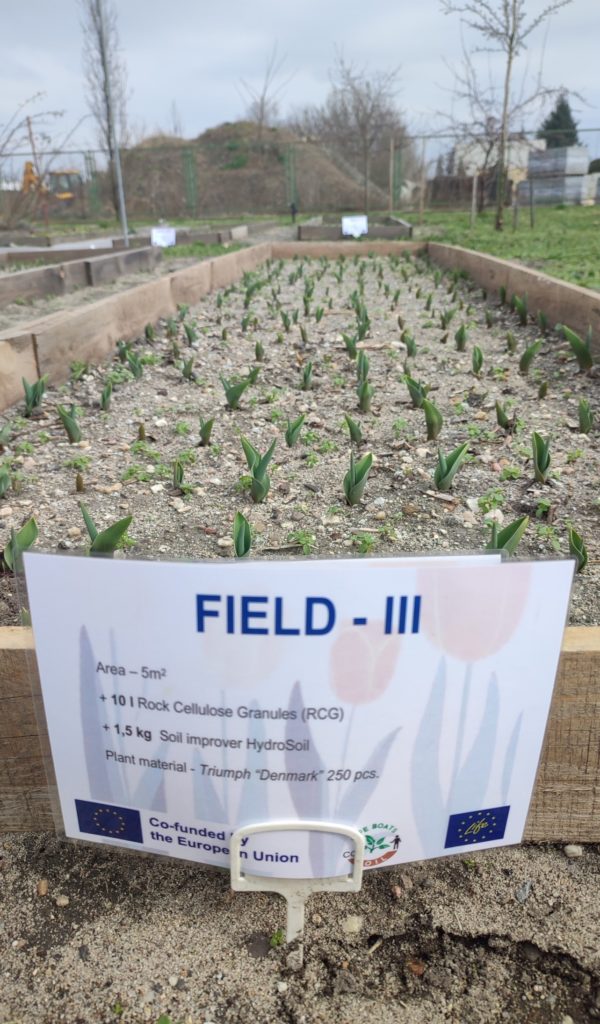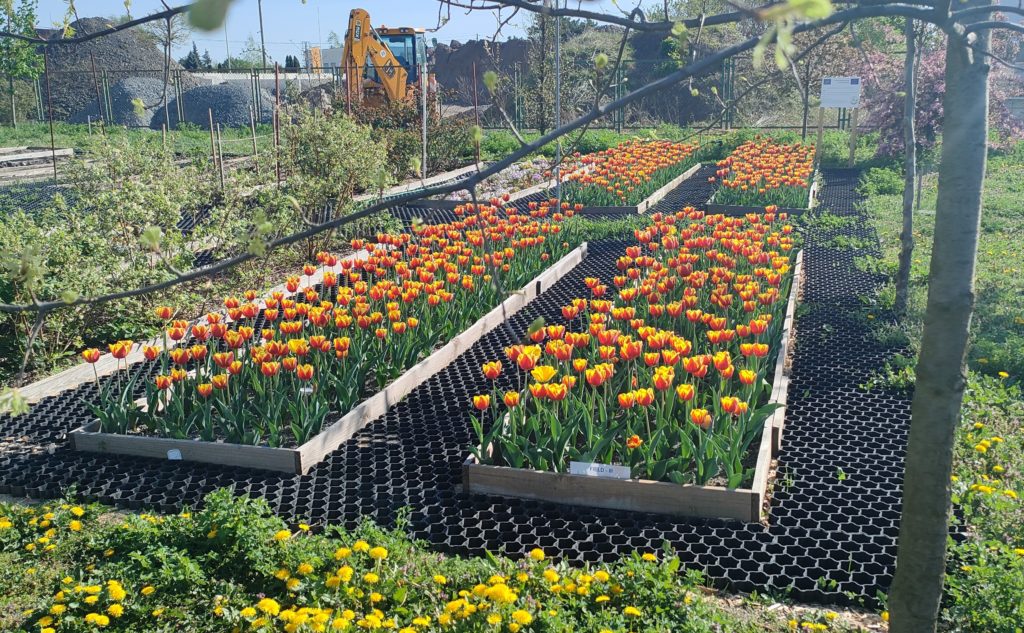We are excited to share the successful demonstration of our groundbreaking soil improvement technology, conducted as part of the LIFE project SoilLifeBoats. The demonstration took place on our test field. Our innovative approach, involving Rock Cellulose Granules and impregnated wood sticks, was tested under real-world conditions to evaluate its impact on various soil and crop indicators.
The Demonstration: A Comprehensive Test of Soil and Crop Health
The primary aim of this demonstration was to assess how our technology affects the physical, chemical, and biological properties of soil, as well as the overall condition of crops. This rigorous testing was overseen by our esteemed partner, the National Institute of Horticulture (InHort), under the expert guidance of Professor Jadwiga Treder, a leading specialist in the field.



Our Experimental Setup: Diverse Test Fields for Accurate Results
Our experimental field was divided into four distinct plots, each featuring a different treatment to ensure a comprehensive evaluation:
Control Field: This plot consisted of normal soil without any additives, serving as our baseline for comparison.
Rock Cellulose Granules Field: This plot was treated with our innovative Rock Cellulose Granules to test their individual impact on soil and crop health.
Impregnated Wood Sticks Field: This plot was treated with impregnated wood sticks to assess their standalone effectiveness.
Combined Treatment Field: This plot received a mixture of both Rock Cellulose Granules and impregnated wood sticks, allowing us to observe any synergistic effects.
All plots were planted with Dow Jones tulips, supplied by one of the largest flower bulb producers, Bogdan Królik Horticultural Wholesaler.
Promising Results: Enhanced Soil and Crop Conditions: Our initial observations are highly encouraging. The control field, which did not receive any of our soil additives, was found to be in the poorest condition compared to the other plots. The fields treated with Rock Cellulose Granules, impregnated wood sticks, and the combination of both showed noticeable improvements in several key areas:
Soil Physical-Chemical Indicators: Enhanced soil structure, increased nutrient availability, and improved water retention were observed in the treated plots.
Biological Indicators: Higher microbial activity and a greater presence of beneficial soil organisms were noted in the plots with our technology.
Crop Condition: The tulips in the treated fields exhibited better overall health, with larger size and more vibrant appearance compared to those in the control plot.
These promising results suggest that our technology has the potential to significantly enhance soil health and crop productivity. We are committed to further refining and expanding our research to fully understand the long-term benefits and applications of Rock Cellulose Granules and impregnated wood sticks.
We extend our gratitude to Professor Jadwiga Treder and the team at the National Institute of Horticulture for their invaluable expertise and support. Together, we are paving the way for a more sustainable and productive agricultural future.
Stay tuned for more updates on our ongoing research and development efforts.